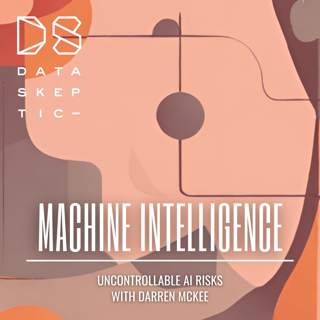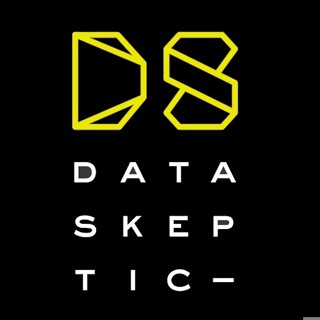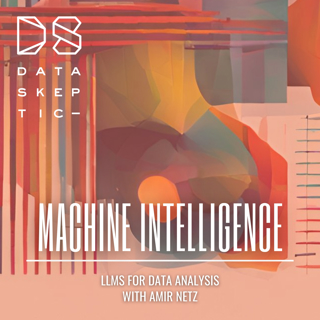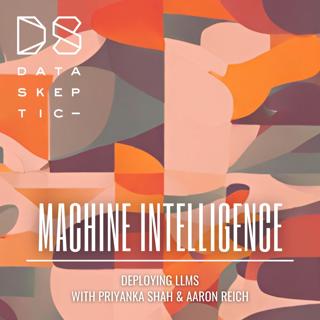
What the Antlion Knows
Our guest is Becky Hansis-O'Neil, a Ph.D. student at the University of Missouri, St Louis, and our co-host for the new "Animal Intelligence" season. Becky shares her background on how she got into the field of behavioral intelligence and biology.
30 Tammi 202441min

AI Roundtable
Kyle is joined by friends and former guests Pramit Choudhary and Frank Bell to have an open discussion of the impacts LLMs and machine learning have had in the past year on industry, and where things may go in the current year.
17 Tammi 202450min

Uncontrollable AI Risks
We are joined by Darren McKee, a Policy Advisor and the host of Reality Check — a critical thinking podcast. Darren gave a background about himself and how he got into the AI space. Darren shared his thoughts on AGI's achievements in the coming years. He defined AGI and discussed how to differentiate an AGI system. He also shared whether AI needs consciousness to be AGI. Darren discussed his worry about AI surpassing human understanding of the universe and potentially causing harm to humanity. He also shared examples of how AI is already used for nefarious purposes. He explored whether AI possesses inherently evil intentions and gave his thoughts on regulating AI.
27 Joulu 202338min

I LLM and You Can Too
It took a massive financial investment for the first large language models (LLMs) to be created. Did their corporate backers lock these tools away for all but the richest? No. They provided comodity priced API options for using them. Anyone can talk to Chat GPT or Bing. What if you want to go a step beyond that and do something programatic? Kyle explores your options in this episode.
23 Joulu 202323min

Q&A with Kyle
We celebrate episode 1000000000 with some Q&A from host Kyle Polich. We boil this episode down to four key questions: 1) How do you find guests 2) What is Data Skeptic all about? 3) What is Kyle all about? 4) What are Kyle's thoughts on AGI? Thanks to our sponsorsdataannotation.tech/programmers https://www.webai.com/dataskeptic
19 Joulu 202340min

LLMs for Data Analysis
In this episode, we are joined by Amir Netz, a Technical Fellow at Microsoft and the CTO of Microsoft Fabric. He discusses how companies can use Microsoft's latest tools for business intelligence. Amir started by discussing how business intelligence has progressed in relevance over the years. Amir gave a brief introduction into what Power BI and Fabric are. He also discussed how Fabric distinguishes from other BI tools by building an end-to-end tool for the data journey. Amir spoke about the process of building and deploying machine learning models with Microsoft Fabric. He shared the difference between Software as a Service (SaaS) and Platform as a Service (PaaS). Amir discussed the benefits of Fabric's auto-integration and auto-optimization abilities. He also discussed the capabilities of Copilot in Fabric. He also discussed exciting future developments planned for Fabric. Amir shared techniques for limiting Copilot hallucination.
12 Joulu 202329min

AI Platforms
Our guest today is Eric Boyd, the Corporate Vice President of AI at Microsoft. Eric joins us to share how organizations can leverage AI for faster development. Eric shared the benefits of using natural language to build products. He discussed the future of version control and the level of AI background required to get started with Azure AI. He mentioned some foundational models in Azure AI and their capabilities. Follow Eric on LinkedIn to learn more about his work. Visit today's sponsor at https://webai.com/dataskeptic
4 Joulu 202333min

Deploying LLMs
We are excited to be joined by Aaron Reich and Priyanka Shah. Aaron is the CTO at Avanade, while Priyanka leads their AI/IoT offering for the SEA Region. Priyanka is also the MVP for Microsoft AI. They join us to discuss how LLMs are deployed in organizations.
27 Marras 202335min





















